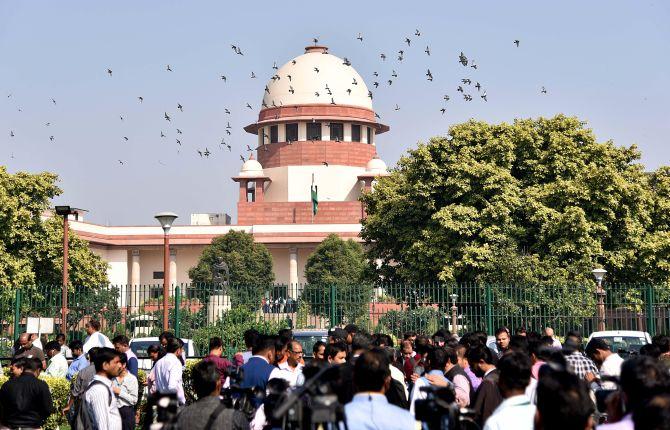Chief Justice D Y Chandrachud on Friday said the Supreme Court, in its full court meeting, has decided that all the 13 benches will hear 10 transfer petitions pertaining to matrimonial disputes and equal number of bail petitions daily in a bid to lessen the pendency of cases.

At the start of the proceedings, the bench said the decision has been taken at a meeting of all apex court judges.
"After a full court meeting, we have decided that each bench will take up 10 transfer petitions, which are family matters, followed by 10 bail matters every day to dispose of all such matters before the winter vacation," the CJI said, adding bail matters needed to be given primacy as they pertained to personal liberty.
The bench said as of now there were 3,000 petitions pending in the top court pertaining to matrimonial cases where parties are seeking transfer of cases to a place of their liking.
The bench said if every bench takes up 10 transfer cases every day then 13 benches will be able to decide ”130 cases per day and 650 per week. So at the end of five weeks which we have before closing before winter vacations, all transfer petitions will be over."
The benches will start taking up regular cases after dealing with these 20 bail and transfer petitions every day, the CJI said.
Justice Chandrachud also said that he has decided to cut down the number of cases to be listed at the last moment in the supplementary list to lessen the burden on judges who are forced to see case files till late night.










